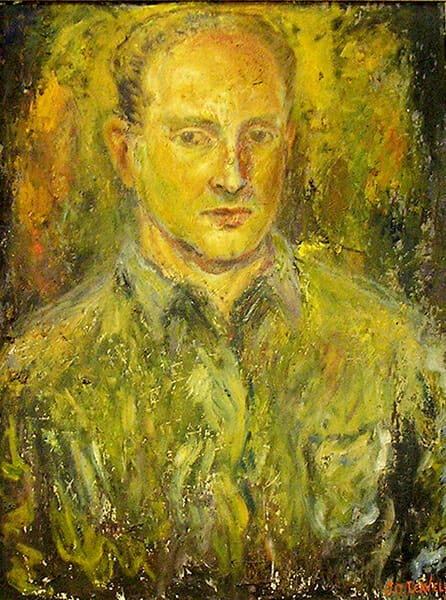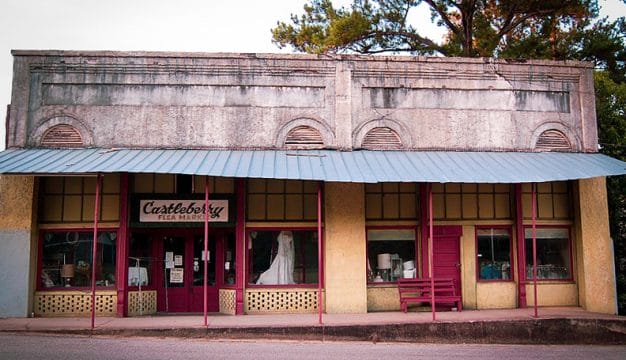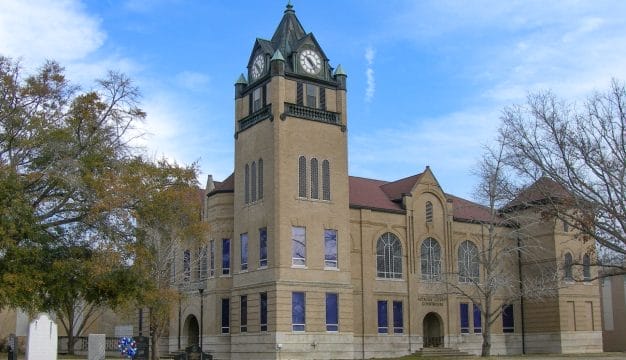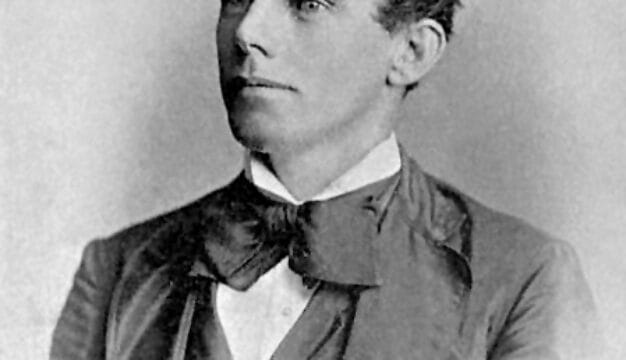Lonnie Coleman
Although novelist and playwright Lonnie Coleman (1920-1982) was born in Georgia, he spent his adolescence in Montgomery and his college years in Tuscaloosa, both cities providing him with stimulus, setting, and characters for later works. At his best, in such works as The Golden Vanity, Mark, Adams’ Way, Ship’s Company, The Sound of Spanish Voices, and Time Moving West, Coleman demonstrates keen intelligence, integrity of thought and style, and the courage to explore difficult issues. To read beyond his popular successes is to discover a serious and important artist.
William Laurence Coleman was born on August 2, 1920, in Bartow, Georgia, to John Aldine Coleman, a police officer, and Delle Williams Coleman, a medical nurse. The family moved to Montgomery, Alabama, when Lonnie was 12, and Coleman later claimed that the time period surrounding this move is when he was first inspired to become a writer. Raised primarily by an aunt and uncle, he graduated from Sidney Lanier High School in 1938. Coleman entered the University of Alabama in Tuscaloosa in 1938, quickly becoming active in the theatre and the creative writing program. He was both a playwright and an actor in the university’s Blackfriar Dramatic Society, which produced and published two of his plays. Encouraged by supportive faculty, Coleman entered and won short-story contests sponsored by both The Atlantic Monthly (1941) and Mademoiselle (1942). Coleman graduated with a bachelor’s degree in 1942.
Coleman moved to New York and entered the Navy and completed the U.S. Navy Reserve’s Midshipmen’s School as the United States was engaged in World War II. Coleman first
 Portrait of Lonnie Coleman
served as a gunnery officer and then was promoted to first lieutenant, serving on an attack transport for two years in the Atlantic, the Mediterranean, and the Pacific. Coleman took part in the invasions of Sicily, Italy, France, and Okinawa and published a short story, “Doomsday Trumpet,” and his first novel, Escape the Thunder (1944), during his military service. His experiences during the war would provide the material for three of his later works: the novels Time Moving West (1947) and The Golden Vanity (1962) and the short-story collection Ship’s Company (1955).
Portrait of Lonnie Coleman
served as a gunnery officer and then was promoted to first lieutenant, serving on an attack transport for two years in the Atlantic, the Mediterranean, and the Pacific. Coleman took part in the invasions of Sicily, Italy, France, and Okinawa and published a short story, “Doomsday Trumpet,” and his first novel, Escape the Thunder (1944), during his military service. His experiences during the war would provide the material for three of his later works: the novels Time Moving West (1947) and The Golden Vanity (1962) and the short-story collection Ship’s Company (1955).
After the war ended, Coleman taught English from March to June of 1946 at North Carolina State College in Raleigh and also began working as a freelance writer. He also spent several months in Guatemala, a visit that later contributed elements of the setting, plot, characterizations, and atmosphere of what is considered one of his finest novels, The Sound of Spanish Voices (1951). In 1947, Coleman moved to Philadelphia to take a position as an associate editor with the Ladies Home Journal. He then moved to New York to work for Collier’s magazine in 1951 and also published the novels Clara (1952) and Adams’ Way (1953). In 1955, he took a position as an associate editor with The Dallas Morning News in Texas and published two more novels; his 1959 novel Sam is considered a ground-breaking work for its honest portrayal of gay life in New York. He then moved back to New York, where he worked for Good Housekeeping (1961-63) and McCall’s (1964-72).
During this period, Coleman began to attempt a career as a playwright. That same year, Next of Kin, his first of three Broadway productions, was adapted for the screen with the title Hot Spell, starring Shirley Booth and Anthony Quinn. Jolly’s Progress, a three-act dramatization of his 1953 novel Adams’ Way, was first produced at the Longacre Theatre in December 1959, with Eartha Kitt and Wendell Corey. And A Place for Polly first appeared at the Ethel Barrymore Theatre on April 18, 1970. Coleman’s dramatic credits also include A Warm Body (1967) and a 1956 episode of the television show Playwrights ’56 entitled “Nick and Letty,” which was adapted from one of the short stories in Ship’s Company. His theatrical attempts were generally considered failures, however.
The majority of Coleman’s works explore the lives of lonely individuals, often misfits, who struggle against prejudice, provincialism, and violence. Those who succeed develop a stoic acceptance of the world and themselves. His early versions of these isolated figures are simple and predictable, but his later characters—an innocent man convicted of murder, an idealistic novelist who discovers the realities of love, an intelligent gay student seeking completeness—are much more complex, being what Coleman called “spiritual refugees.” Their lives dramatize the struggle between a person’s desire for freedom on the one hand and the need to find meaning in relationships on the other. In contrast to his protagonists, the antagonists in his works are “do-gooders” and pious busybodies who attempt to impose their narrow codes on his lonely figures or are irresponsible talkers and takers and ruthless victimizers.
Around 1970, Coleman moved from New York’s Greenwich Village to a house in Brighton, England, where he began working on his Beulah Land trilogy, which details the lives of two plantation families in the Civil War. The novels were wildly popular, but Coleman has been accused of sentimentalizing his misfits and lacking depth. Beulah Land, however, brought the highest price ever paid for paperback rights for a single novel up to its time, and his trilogy was so successful that it was translated into Italian, Dutch, and German. Coleman lived on the west coast of Ireland from 1973 to 1979 and then returned to Georgia, spending his final three years in Savannah. He died of cancer on August 13, 1982, at Candler General Hospital.
Selected Works by Lonnie Coleman
Escape the Thunder (1944)
Time Moving West (1947)
The Sound of Spanish Voices (1951)
Clara (1952)
Adams’ Way (1953)
Ship’s Company (1955)
The Southern Lady (1958)
Sam (1959)
The Golden Vanity (1962)
King (1967)
Beulah Land (1973)
Orphan Jim (1975)
Look Away, Beulah Land (1977)
The Legacy of Beulah Land (1980)
Mark (1981)
Additional Resources
Fuller, Muriel. “Lonnie (William) Coleman.” Wilson Library Bulletin (February 1958): 394.
Coleman Letters Special Collections, Gorgas Library. University of Alabama, Tuscaloosa.



